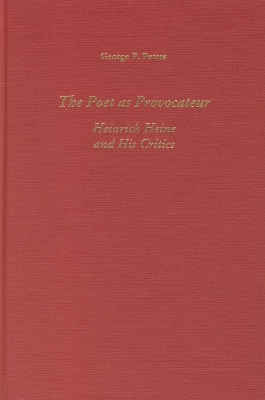Heinrich Heine (1797-1856), one of the best known and most controversial German writers of the nineteenth century, has been the subject of intense critical debate. Heine's lyric poetry ranks second only to Goethe's in popularity and is known world wide in musical settings. He is also known for his stories and travel sketches, his writings on political, social, and cultural developments in Europe, and for essays on literature, religion, and philosophy. Peters's study records the stormy development of Heine's critical reception from his own time down to the present. As a Jew living in Paris, an outspoken critic of both repressive political policies in Germany and the stifling influence of the Catholic church, and the author of the most famous satirical poem in the German language, Deuschland. Ein Wintermarchen, Heine engendered the wrath of the conservative critics of his day, while progressive critics, particularly those supportive of his emancipatory ideals, came to his defense. Since his death, Heine criticism has continued to be partisan in tone. Twentieth-century Heine criticism has mirrored Germany's historical development, from the nationalistic fervor of the Wilhelminian era, through the tolerance of Weimar, the anti-Semitic frenzy of the Third Reich, the postwar period of competing critical views in East and West, to the final decade of the century and a period of renewed and intense critical interest.
George F. Peters is professor of German and Chair of the Department of Languages and Linguistics at Michigan State University.
- ISBN10 1571131612
- ISBN13 9781571131614
- Publish Date 8 June 2000
- Publish Status Active
- Out of Print 28 May 2021
- Publish Country US
- Publisher Boydell & Brewer Ltd
- Imprint Camden House Inc
- Format Hardcover
- Pages 239
- Language English
